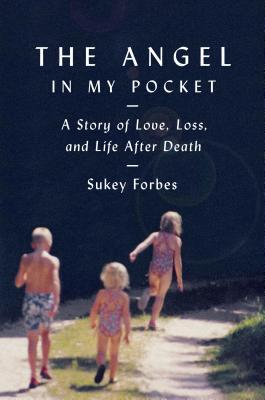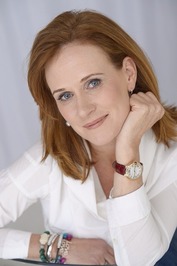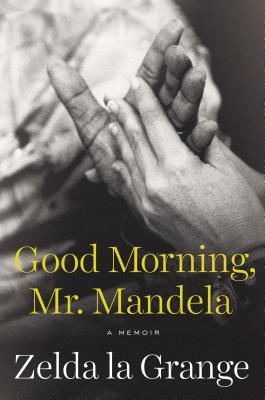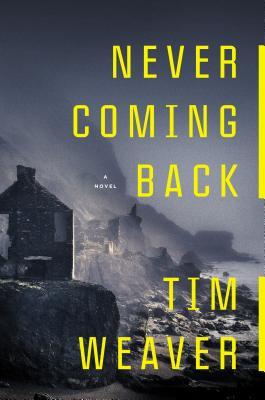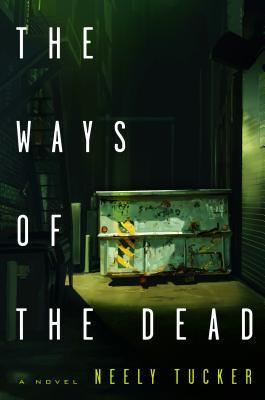The Ways of the Dead: A Novel
Author: Neely Tucker
Genre: Mystery/Thriller
Release Date: June 12, 2014
Publisher: Viking Adult
Description:
When the body of Sarah Reese—the pretty
teenage daughter of a prominent federal judge—is found in an alley in a
rundown section of Washington D.C., the police quickly arrest three
local black kids known to be at the scene of her death.
The case appears to be cut and dry until Sully Carter arrives. Back
from reporting in war-torn Bosnia with serious injuries and an even more
severe chip on his shoulder, Carter spends as much time drinking and
speeding around D.C. on his 1993 Ducati 916 as
he does filing stories. Almost immediately, Carter gets the feeling
there’s more to the case than the police suspect. Reese’s slaying might
be related to a string of cold cases the police barely investigated,
among them the recent disappearance of a gorgeous
university student. He also can’t help but notice that a white girl’s
murder is front page news, but the disappearance of multiple African
American and Latina women have been left unsolved.
Against pressure from Judge Reese, Carter’s
bosses at the paper, and a powerful drug dealer who runs the area around
Princeton Place, Carter races to link the crimes into a cohesive story.
Set against the backdrop of D.C.’s broad avenues
and shady backstreets, Tucker tells a story that juxtaposes blighted
neighborhoods shadowed by pristine monuments of power. THE WAYS OF THE
DEAD takes readers into the fast-paced, deadline-driven newsroom that
Tucker knows so intimately. This propulsive thriller
is perfect for fans of George Pelecanos and Elmore Leonard.
Praise:
 “Crisp, crafty and sharply observed . . . Rich yet taut description,
edgy storytelling, rock-and-rolling dialogue, and a deeply flawed
but compelling hero add up to a luminous first novel.”
“Crisp, crafty and sharply observed . . . Rich yet taut description,
edgy storytelling, rock-and-rolling dialogue, and a deeply flawed
but compelling hero add up to a luminous first novel.”
—Kirkus Reviews (Starred Review)
 “With the emphasis on gritty urban life in a city rife with racism and
blight, [The Ways of the Dead] evokes the Washington, D.C.,
of George Pelecanos. This riveting debut novel should spawn a terrific
series.”
“With the emphasis on gritty urban life in a city rife with racism and
blight, [The Ways of the Dead] evokes the Washington, D.C.,
of George Pelecanos. This riveting debut novel should spawn a terrific
series.”
—Booklist (Starred Review)
“[An] exciting fiction debut . . . The brisk
plot is punctuated by an insightful view of journalism and manipulative
editors, shady politicians, and apathetic cops, while also showing
residents working to create a better neighborhood.
Readers will be pleased that Tucker leaves room for a sequel.”
—Publishers Weekly
“With a very powerful beginning and a very
shocking end, this debut novel is a great read that shows
suspense/thriller lovers that they do, most definitely, have a new
series to fall in love with.”
—Suspense Magazine
“THE WAYS OF THE DEAD is a great read. Deep
characters, pitch perfect dialogue and a plot with as many curves as the
Rock Creek Parkway as it moves through the side of Washington D.C. far
away from the Smithsonian. Neely Tucker takes
this novel up an even further notch with a story framed around the hot
button issues of our time, including race, justice and the media. If
this is Tucker's first novel, I can't wait for what's coming next.”
—Michael Connelly
You’ve been a journalist for 25 years, but are now turning to fiction. What prompted the switch? Have you always wanted to write novels?
I got started in journalism more or less by accident. I was a theater and English major in college and, while I was a junior, got offered a reporting job in town at what was the smallest daily newspaper in Mississippi (the Oxford Eagle). It paid $4.50 cents an hour and the radio station I was working at the time paid $4.25.I was paying my way through school, so there you go. I thought I'd stay in papers for a few years, move around some, learn to write sentences and then, I don't know, move to a mountain cabin and write fiction. It wasn't terribly clear how that part was going to work. Then I got to moving around a lot more than I planned and it was great -- Miami, Detroit, Europe, the Middle East, Africa -- and then I had kids. All that time, I never really considered myself a newspaper guy. In my mind, I was a writer who was paying the bills by working at a newspaper. I finally remembered the part about writing something else. No mountain cabin, though.
What has been the biggest difference about writing a novel over newspaper stories?
That you can just make stuff up and not get fired for it. It's even encouraged! I had this weird little moment when I was talking to my agent about the finished manuscript and I kept wanting to say, "Now, you know I just made all this up, right? It didn't really happen?" It was this thing I had going through my head. And I found this fictional aspect to be a tremendous amount of fun. If I wanted Sully Carter to have a drink at his desk, well, he did. If I wanted him to say lots of really bad words, he turned loose. So I loved that. That said, I worked on this book over a three-year period around the day job, and it was sometimes a challenge to keep some of the minor characters looking and acting just the same. One guy grew three inches. One went from being a Detroit native to being from West Virginia. So I eventually created an Old Testament sort of "bible-of-the-book" that said who begat who and whatnot. It kept everybody in line and stopped them from shape-shifting.
Your first book, Love in the Driest Season, was a very successful memoir. How has the publishing process been different this time around?
It's much looser. "Season" was a pretty serious book, primarily about adopting our daughter in a country (Zimbabwe) where journalists like me were declared to be "enemies of the state." We were living in the U.S. by the time the book came out, but I was always nervous that the Zimbabwean government might take offense and try to take our daughter back, in an Elian Gonzalez kind of way. They didn't, thank heavens. On this book, all I have to worry about is people saying, "Hey, you suck!" which is no big deal. Reporters get that all the time, particularly in a town as given to name-calling as Washington.
As a writer for the Washington Post, you’ve profiled big name thriller and mystery writers. What did you learn about the genre from these authors? Who are some of your favorite mystery writers?
The main thing you learn from successful writers is that they find out they have a certain process -- and then they replicate that process. Your stories can vary wildly, but your approach probably needs to be the same. Elmore Leonard wrote from nine to five, a couple of pages a day, and let the ending work itself out. He never know how it was going to end until it did. Michael Connelly has a definite beginning and end, but let's the middle part work itself out. Richard North Patterson is very conscious and deliberate about setting up twists, particularly the end. "It's a shame not to surprise your readers with your ending, but it is a shame to surprise yourself," he said. Ann Patchett, who doesn't exactly write mysteries but does write about books with narrative tension, can't write a book with cell phones in it, or ones that work all the time, because it drives her crazy with how to keep knowledge from certain characters. So all of these are very successful writers and they all write differently. The thing that they do is recognize their process -- even down to daily routines and time management -- and then replicate it. It's like that ad about sports superstitions: It's only crazy if it doesn't work.... For favorite current mystery writers, it depends on the day, but it's fair enough today to say the above list and throw in Richard Price and Gillian Flynn.
The Ways of the Dead is based on a real series of murders in the D.C. area—the Princeton Place murders of the ‘90s. How did you choose these as a model? How much did you already know about them?
I was covering D.C. Courts from 2000-2002, after having just returned from abroad. The Princeton Place killings had already happened, but the case was coming up for trial, which would be my beat So I was doing a lot of research, principally on the suspect. Just as it was coming to trial, I sold my first book and had to take leave to write it. I never really got to do anything on that case. So I said, "Well, fine, I'll just make it the basis for a novel." It really started then, developing a cast of characters. I wanted the crime to set off a media event that would then play out in public and in people's personal lives, with the tension of trying to make those two realities mesh. I've always been struck, as a reporter, by how you can never really know everything that happens in something as serious as a homicide. How can you put something in the paper -- the public eye -- when you can't see the whole puzzle? That's the terror of it.
Race, and the way it plays into criminal justice and criminal investigations, is a focus of your novel. What do you hope readers will take away from this part of the narrative? What has or hasn’t changed in how minorities are treated by our criminal justice system?
Part of what the story plays with are racial expectations in the ways certain narratives play out in mass media. As in: Rich White Girl Killed in Bad Neighborhood, Three Black Teens Arrested. Once a story like that hits, it sets off a lot of alarm bells and reactions in society that may or may not have anything to do with the actual facts of the case at hand. People who are a thousand miles away will suddenly become experts on what happened, with an emotional, inflexible point of view. You saw this in the Trayvon Martin case -- people on both sides dug in. It became a Rorschach test for one's social viewpoint on race and crime in America. Of course, that sort of emotion can be manipulated by people at the core of the event, which is part of what "The Ways of the Dead" is about -- be very, very careful about what you think you know.
Your main character, Sully Carter, is rough around the edges and tends to play by his own rules. How did his character begin to take shape? What’s next for him?
I first heard the name "Sully Carter" at my great-aunt's funeral in West Memphis, Ark.,about a dozen years ago. He was a distant relative whom I'd never met and was apparently sort of a character. My uncle's wife kept saying in the car on the way to the cemetery, "Oh, Sully Carter did this," and "Can you believe Sully Carter did that." She kept using both names. And I thought that's perfect, both names like that. We were crossing the Mississippi River about that time, and so it just came to me that the fictional Sully Carter would be from the right by the river. That gave him a lot of his character and attitude, that sort of rough-hewn, Southern, hard-by-the-river kind of thing. So by the time this sort of guy would have gotten to Washington, he would have a real chip on his shoulder about dealing with authority and the high and mighty.... Next for Sully is a story that has to do with the Washington Channel, a suicide and the D.C.-area slave trade. The working title is "The Well of Time" and it has some of the same themes as this book -- the way in which the past makes us who we are, white and black, rich and poor, in complicated ways that can't be predicted.
The novel is set in the ‘90’s before smart phones, social media, and the blogosphere changed the way we get information and interact with the media. Why did you decide to set it in this time period? Did you find yourself becoming nostalgic for this bygone era?
I very much wanted to set this in the last of the glory days for American newspapers. The fading of an era is tremendously appealing to write about, at least to me, and this was a time period I knew a good bit about, in a field I'd been working for a long time. When I started at a small-town paper in the 1980s, there was this romantic sort of ideal to what would make a good reporter -- say, somebody who'd maybe gotten a little college, but who had bounced around, worked on a shrimp boat, in a bar, as a field hand, driven a truck. Somebody who knew the hard end of life, wrote like an angel and had a fantastic bullshit meter. That's a world class reporter. Sully has some of that, when his temper isn't getting in the way. So I put him in the twilight of the era and let him start causing trouble.
Without giving away too much, what does the title signify?
It's a world view that's inherent in the book and is expressed in one phrase in particular. Most narrowly, the dead leave clues as to how they died, and so by studying the ways of the dead you might can understand their lives and perhaps who killed them. But the larger point is that the dead never really leave us alone. They are always with us. So, in the larger sense, the ways of the dead are the ways of ourselves, of the ways of the living, and by studying them, we get to know ourselves.
Your career in journalism has taken you all over the world. How do you bring those experiences into your fiction?
It informs almost everything I do. I grew up in the Deep South, traveled over a good bit of the globe, and have a lot of experiences that show you the world through another prism. Once, I was in the south of France, the foothills of the Alps, looking down at Monte Carlo at night. The lights, the sea, the hills -- who wouldn't say this is fabulous? But I was walking with a pair of Romanian clandestines who were sneaking into the country illegally. So we were snooping past these million dollar homes and, eventually, my interpreter and I were chased off a small cliff by a couple of guard dogs. We spent the night on a steep incline, braced against a couple of bushes, freezing our fannies off. This woman I barely know and I, literally wrapped around each other. From that vantage point, Monte Carlo didn't look like paradise. It looked like rich people in a police-protected bubble, which is exactly how the young Romanian couple saw it. One place, multiple realities. I think that's invaluable for writing anything, particularly fiction.
Sully shares a name with a four-legged member of your family. Tell us about the real-life Sully.
Sully the big black dog is our 140-pound Rotweiller. He's five now, and I had this book in mind when we got him as a puppy. We named him Sully to remind me to work on the book, so I guess it's not clear who's named after who. I write in an upstairs office that opens onto a small balcony that overlooks the street. Sully likes to sit by me and then walk out on the balcony and bark like hell at people walking by. Scares the daylights out of strangers, they hear this dog with a voice that sounds like the gates of hell have opened, they look around, there's nothing there....and then they look up and see him on the second floor. Our neighbors know him, so they just wave and say "Hey Sully!" and he goes to wiggling his stump, or flops down and takes a nap. He also likes to sleep under my feet while I'm writing, which I like. He's doesn't talk much, so he's good company.

Neely Tucker is a veteran journalist with a career spanning twenty-five years, fourteen of which he’s spent at
The Washington Post. His 2004 memoir, Love in the Driest Season, was named one of the Best 25 Books of the year by
Publishers Weekly. Born in Mississippi, Tucker lives with his family in Bethesda, Maryland.
Giveaway: The awesome people at Viking are allowing me to give away (1) finished copy of the book to (1) reader!! US Only!
 Burnt Toast Makes You Sing Good: A Memoir of Food and Love from an American Midwest Family
Burnt Toast Makes You Sing Good: A Memoir of Food and Love from an American Midwest Family KATHLEEN FLINN and her books have been featured in People, ELLE, Bon Appetit, The Wall Street Journal, and on NPR and CBS Morning News. Her first book, The Sharper Your Knife, the Less You Cry was a New York Times bestseller. Her acclaimed second book, The Kitchen Counter Cooking School was named a 2012 Nonfiction Book of the Year by the American Society of Journalists & Authors. Learn more at www.cookfearless.com.
KATHLEEN FLINN and her books have been featured in People, ELLE, Bon Appetit, The Wall Street Journal, and on NPR and CBS Morning News. Her first book, The Sharper Your Knife, the Less You Cry was a New York Times bestseller. Her acclaimed second book, The Kitchen Counter Cooking School was named a 2012 Nonfiction Book of the Year by the American Society of Journalists & Authors. Learn more at www.cookfearless.com. 








